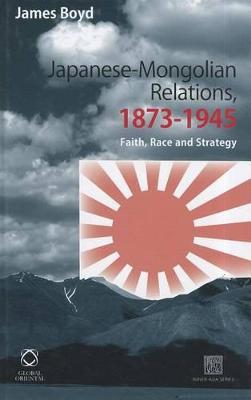This book offers the first in-depth examination of Japanese-Mongolian relations from the late nineteenth century through to the middle of the twentieth century and in the process repositions Mongolia in Sino-Japanese and Russo-Japanese relations. Beginning in 1873, with the intrepid journey to Mongolia by a group of Buddhist monks from one of Kyoto's largest orders, the relationship later included groups and individuals from across Japanese society, with representatives from the military, academia, business and the bureaucracy. Throughout the book, the interplay between these various groups is examined in depth, arguing that to restrict Japan's relationship with Mongolia to merely the strategic and as an adjunct to Manchuria, as has been done in other works, neglects important facets of the relationship, including the cultural, religious and economic. It does not, however, ignore the strategic importance of Mongolia to the Japanese military. The author considers the cultural diplomacy of the Zenrin kyokai, a Japanese quasi-governmental humanitarian organization whose activities in inner Mongolia in the 1930s and 1940s have been almost completely ignored in earlier studies and whose operations suggest that Japanese-Mongolian relations are quite distinct from other Asian peoples. Accordingly, the book makes a major contribution to our understanding of Japanese activities in a part of Asia that figured prominently in pre-war and wartime Japanese strategic and cultural thinking.
- ISBN10 1906876193
- ISBN13 9781906876197
- Publish Date 17 December 2010 (first published 1 January 2010)
- Publish Status Active
- Publish Country NL
- Imprint Brill
- Format Hardcover
- Pages 280
- Language English
- URL brill.com/product_id43686
